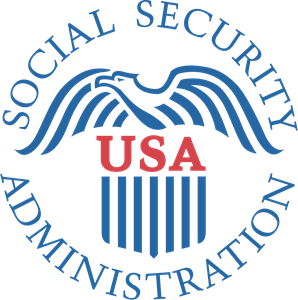



COBRA
COBRA
The Consolidated Omnibus Budget Reconciliation Act (COBRA) gives workers and their families who lose their health benefits the right to choose to continue group health benefits provided by their group health plan for limited periods of time under certain circumstances such as voluntary or involuntary job loss.

FMLA-Family Medical Leave Act
FMLA-Family Medical Leave Act
The Family and Medical Leave Act of 1993 (FMLA) is a United States federal law requiring covered employers to provide employees job-protected and unpaid leave for qualified medical and family reasons.
The Family and Medical Leave Act of 1993 (FMLA) is a United States federal law requiring covered employers to provide employees job-protected and unpaid leave for qualified medical and family reasons. Qualified medical and family reasons include:
-
Personal or Family Illness
-
Family Military Leave
-
Pregnancy
-
Adoption
-
Foster Care Placement of a Child

Government Disability
Government Disability
Social Security pays disability benefits to people who are unable to work due to a medical condition that is expected to last at least one year or result in death. To find out if you qualify and how Social Security can help you, see the link below.

Medicare
Medicare
Medicare is the federal health insurance program for people who are 65 or older, certain younger people with disabilities, and people with End-Stage Renal Disease (permanent kidney failure requiring dialysis or a transplant, sometimes called ESRD).

Social Security
Social Security
Social Security has provided financial protection for our nation's people for over 80 years. Chances are, you either receive Social Security benefits or know someone who does. With retirement, disability, and survivors benefits, Social Security is one of the most successful anti-poverty programs in our nation's history.

Affordable Care Act
Affordable Care Act
The Patient Protection and Affordable Care Act (PPACA), commonly shortened to the Affordable Care Act (ACA) and nicknamed Obamacare, is a United States federal statute enacted by the 111th United States Congress and signed into law by President Barack Obama on March 23, 2010.

HIPAA-Health Insurance Portability and Accountability Act
HIPAA-Health Insurance Portability and Accountability Act
The HIPAA Privacy Rule. The HIPAA Privacy Rule establishes national standards to protect individuals' medical records and other personal health information and applies to health plans, health care clearinghouses, and those health care providers that conduct certain health care transactions electronically.
Most of us believe that our medical and other health information is private and should be protected, and we want to know who has this information. The Privacy Rule, a Federal law, gives you rights over your health information and sets rules and limits on who can look at and receive your health information. The Privacy Rule applies to all forms of individuals' protected health information, whether electronic, written, or oral. The Security Rule is a Federal law that requires security for health information in electronic form.

Qualified Medical Support Order
Qualified Medical Support Order
A medical support order is designed to provide health coverage to a child(ren) of an employee through his or her employer's group health plan.
Qualified Medical Child Support Order (QMCSO)
A QMCSO is designed to provide health coverage to a child(ren) of an employee through his or her employer's group health plan. The QMCSO process occurs through the court system. A medical child support order becomes qualified as a QMCSO if it satisfies the employer's legal and administrative qualification requirements.
National Medical Support Notice (NMSN) provides health coverage for children through a group health plan, the process in reaching this objective differs. A medical child support order is a court order and must be signed by a judge before being submitted for qualification as a QMCSO. The NMSN process, meanwhile, primarily involves a state child support enforcement agency representing the interests of the children and submitting the notice for qualification.
An employee that is ordered to add their child to their health plan as 31 days of the order to add the child to the existing medical, dental, or vision coverage. They will need to complete the appropriate forms and provide a copy of the Qualified Support Order.

Medicare Entitlement
Medicare Entitlement
Employees that have become entitled to or loss their medicare or medicaid are eligible to make benefit changes.
Entitlement to or loss of eligibility for Medicare or Medicaid
If an employee or the employee's dependent becomes entitled to or loses eligibility for Medicare (Part A or Part B) or Medicaid they are eligible to make changes to their benefit plans.
Changes must be reported within 31 days of the eligibility change. You may add or drop medical, dental, or vision coverage for yourself or the applicable family member. You may also elect to change your medical FSA amount. You will need to complete the appropriate forms and provide a copy of the notification letter from Medicare or Medicaid.
Social Security/Retirement
For more information please visit the websites below.

ERISA
ERISA
The Employee Retirement Income Security Act of 1974 (ERISA) is a federal law that sets minimum standards for most voluntarily established pension and health plans in private industry to provide protection for individuals in these plans.